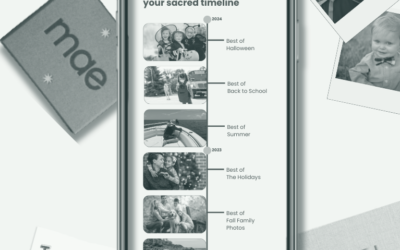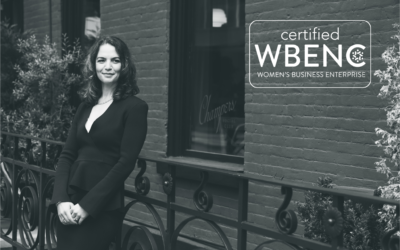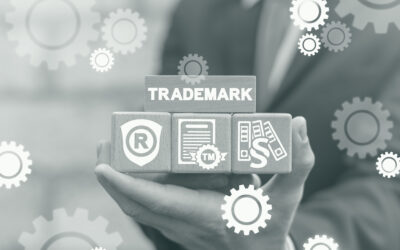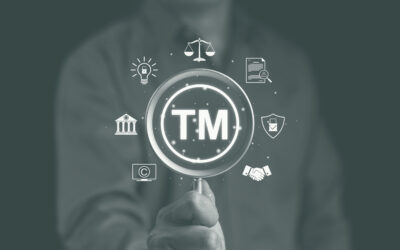With the proliferation of Artificial Intelligence (AI)-based efficiencies, fears, and noise, I decided to dedicate 2025’s first newsletter to this behemoth of a topic – maybe I can cut through the overwhelm just a touch today.
I’ve been trying to write this newsletter for weeks (if I’m honest, months) but each time I have 20-30 minutes to spend on it, I realize the landscape has changed and my allotted time gets sucked into attempting to wrap my arms around the latest AI-meets-the-law news. Alas, I’m getting the Q1 newsletter out because if I don’t, it will become the Q2 newsletter and then quickly the Q3… Herewith, some musings and notes on AI through the lens of one singular lawyer; take it as you may!
I consider the state of AI today somewhat like the internet was in the 90s or apps were in the aughts: not really a thing unto themselves, but a means to change and modify almost everything. However, unlike URL’s and apps, AI has a much broader scope and will undoubtedly change our lives even more significantly than either of those predecessor inventions.
This newsletter could wax on and on about use-cases for AI, but I think you can find that sort of information relatively easily around the internet – or just ask your favorite friendly AI bot for some ways to utilize it in your daily life. Instead, I will limit the discussion to some current thoughts and notes regarding AI in the realm of intellectual property (IP) rights and will then (1) look at its treatment in the courts, and (2) how governments are addressing (or not) AI’s aggressive attack on individual IP rights.
Before I dig in, let me lay out a few notes about how AI and IP intersect. IP rights can be categorized as patents, trademarks, copyrights, trade secrets, and a somewhat nebulous fifth category encompassing everything from proprietary secrets to general know-how. While each of these categories has its own set of laws, regulations, and policies, there is generally some mechanism of fair use applicable to many IP rights. Fair use is what allows a newspaper to publish photos of famous athletes, allows Pepsi to name Coca-Cola in its ads, and allows artists to sample or spoof another in a work. Fair use is also what companies such as Meta and OpenAI rely on in justifying the scraping and copying of mountains of IP-protected material in building AI platforms.
As the argument goes, these tech behemoths are merely using copyright protected materials to train their AI in so much as is necessary for the good of the new technology. Historically, the value of building new technology has outweighed the value of protecting the individual rights of copyright holders such as the New York Times, Westlaw, and millions of original creators.
What’s Happening in the Arts and Creative Industries?
One of the biggest complaints is that the laws we rely on today were not drafted with any inkling of the technologies of today. The current disputes are an example of what happens when legislators are outpaced by new technologies. Current IP laws around the globe were generally enacted long before anyone could have imagined that massive technology companies could scrape the entire internet as training data for AI models which in-turn were taught to spew out everything from unique art to recipes, from duped voices to spins on current events.
The critical issue we are still grappling with is: ‘what constitutes copyright infringement’? We appear to be slowly narrowing the aperture, but it is a lofty question leaving judges, technologists, and creators all scratching their heads.
Our society long ago decided to incentivize creativity (which is central to copyright as a protected work must be original) and yet we also chose to incentivize technology and novel solutions. Now, they appear to be at odds.
Historically, the law will not regulate technologies with dual purposes (good and bad) prophylactically. Rather, it will wait for actual harm. Starting with the Betamax case in 1984, courts said: we are not going to outlaw something that could be used to infringe the IP rights of another, we are going to wait for you to bring us actual infringement and then we will punish the bad actors.
Prospective infringers get to beg forgiveness rather than ask permission.
AND we’ve created the undisputed technological engine here in the U.S. But the problem is with the current modus operandi of appropriation without consent or compensation and the repackaging and reselling of the stolen content at a greatly discounted price to the end consumer, we’ve put a stranglehold on the already strained livelihoods of artists and creators.
Some examples
Amid rampant opposition including an open letter signed by over 6,500 artists, major art auction house, Christie’s recently hosted an exclusively AI-generated art auction. The protesting artists claim that at least a third of the works up for auction were created using AI models which were trained on copyrighted works, including Midjourney, OpenAI’s Sora, Runway AI, and Stable Diffusion.
If you didn’t follow the Oscars drama, The Brutalist admitted to using generative-AI to help several actors’ Hungarian language sound more authentic. The team assured its fans that AI was only used minimally and only for the authenticity of the spoken language. Everything else, the filmmakers took lengths to assure us, was completely human. Film fans are being forced to decide ‘how much generative-AI is acceptable?’ Another major Oscar nominee, Emilia Perez also used generative-AI to extend the vocal range of its lead actor, Karla Sofía Gascón. Digitally altered vocals have been used in audio recordings by both singers and actors since Cher’s Believe used Auto-tune in 1998.
Across the pond in the U.K., there is a more active cry from artists and creators. Currently, creators may opt-out of having their works scraped by AI companies which puts the burden on the artists. In a bold move, thousands of U.K.-based or native creators including Sir Elton John, Kate Bush, Annie Lennox, heads of the National Theater and the Royal Albert Hall, among others, have banded together to pressure the government to flip the burden to AI companies, requiring the companies to seek permission from the creators before scraping original works to train new technologies. The artists even created a 47-minute silent album entitled Is This What We Want? The album contains twelve tracks, entitled: The. British. Government. Must. Not. Legalise. Music. Theft. To. Benefit. AI. Companies. You can listen along on Spotify if you need some quiet in your life!
What’s Happening in the Courts?
Author Richard Osman recently opined on X that copyright infringement is simple: “If you want to use an author’s work you need to ask for permission. If you use it without permission you’re breaking the law. It’s so simple.” But is it? U.S. courts haven’t found it simple at all. Copyright cases have befuddled judges for decades. At present, in most AI copyright cases, courts have held for the defendants, finding their use to be permissible under the ‘fair use’ doctrine.
Earlier this year, in the first landmark win for plaintiffs in an AI-Copyright case, Thompson Reuters Westlaw was recently granted summary judgement against Ross Intelligence for Ross’s use of Westlaw’s copyright protected “headnotes”. The U.S. Circuit Judge Stephanos Bibas, sitting in the U.S. District Court of Delaware, revised much of his own 2023 opinion, in which he ruled against Westlaw, in finding that Ross was guilty of copyright infringement.
All lawyers know that headnotes are a proprietary Westlaw invention which categorizes elements of judicial opinions into bite sized pieces. Using headnotes, lawyers have been able to research other cases with similar or overlapping headnotes to build legally persuasive arguments. Here, Judge Bibas found that while the underlying judicial opinions could not be copyright protected by Westlaw or any other company, the headnotes, which are “chiseled out of a lengthy judicial opinion[s],” do deserve the protection of copyright law. The technology at issue is Ross’ legal-research AI-driven search engine which, through an intermediary service provider, was trained on Westlaw’s headnotes.
As mentioned above, prior to the 2025 Westlaw decision (even including the 2023 decision on this same case), all AI-copyright cases had held for the defendant finding its use ‘fair use’ and favoring novel technology over a copyright holder’s rights to exclusively exploit its creation. So how did Judge Bibas reach such a contrary finding here in Westlaw? Unlike in the 2023 decision, the Judge ruled that Ross’ copying of Westlaw’s copyright protected headnotes had a strong and negative impact on Westlaw’s value and ability to target its potential market. This is the fourth factor of the fair use defense to copyright infringement and one that consistently was held to favor defendants in previous AI-copyright infringement cases. Judge Bibas, by flipping the fourth Fair Use factor in favor of the plaintiff, spun the entire line of cases on their head.
However, since case law is always fact specific, before we extrapolate this holding to signify a left-turn in legal precedent, it is worth noting that (1) about half of Westlaw’s headnotes are copyright protected, the rest are not considered original enough to be protected; (2) the two parties had a history: prior to infringing on its copyright, Y Combinator-backed Ross approached Westlaw for a license and was rejected; (3) the two parties are direct competitors who both offer legal research technology platforms; and finally, (4) Judge Bibas was careful to state that the holding was only relevant to non-generative AI.
What does this mean for approximately 30 other AI-copyright cases currently making their way through the judicial system? Many plaintiffs, such as Conchord Music Group, The New York Times Company, and Getty Images (US), Inc. are each asking its relevant court to consider the Westlaw ruling and revisit how its defendant’s AI technology is preventing it from extracting value from its creations.
Using the valuable intellectual property of others without paying for it has been extremely lucrative for defendant AI technology companies. Stock prices have soared, valuations have ballooned, and salaries for top AI engineers and executives have hit the roof. And we are hooked! “Hundreds of millions of people around the world rely on ChatGPT to improve their daily lives, inspire creativity, and to solve hard problems,” an OpenAI spokesman recently said.
Predicted Outcome
As much fun as litigation is (ha!), with case law showing a possible sign of occasionally falling on the side of the plaintiff, defendants might be more willing to settle. This is likely to be in the form of licensing deals from major content producers to the AI-platforms. We might be welcoming in a new wave of financial opportunities for content producers: and thank goodness!
However, the major tech bro-billionaires continue to behave as untouchable and above the law. In another AI case making its way through the courts, Meta is defending its use of copyright protected works against plaintiffs Richard Kadrey, Sarah Silverman, Ta-Nehisi Coates, and others. Released court filings reveal that Meta CEO Mark Zuckerberg approved his team’s use of copyrighted materials in training its LLaMA family of AI products. Meta executives are cited as directing their teams to “ask forgiveness, not for permission.” The case alleges that Meta bought e-books at retail prices to build a training set rather than negotiate licensing deals with the rights holders. The high-level executives are listed as having orchestrated this scheme. This one will be fascinating to watch!
A more recently filed case by major media publishers including The Atlantic, Forbes Media, LA Times, Vox Media, and others not only asserts copyright infringement, but also claims that the defendant, Canadian AI behemoth Cohere Inc., committed trademark infringement by using their marks on articles the plaintiffs did not write. The case goes on to assert that the defendant’s actions are creating consumer confusion through false designation of origin and is diluting the famous trademarks. It is going to be very interesting to see how trademark law begins to play a bigger part in these AI litigations.
What’s Happening in Governments?
In the U.S., we are seeing a general shift away from individual rights as our current elected officials appear to be less concerned with bias and discrimination in AI-platforms. This sentiment appears to be echoed across the pond in the U.K. (see below).
But on a state-level, we did see a bill come before the California Assembly in February. AB 412 AI Copyright Transparency Act If enacted, it would require detailed disclosures prior to the use of any copyright protected material to train an AI system. Opposition is concerned with a chilling effect on innovation and the inability of start-ups to meet the hefty burden the Act would require for compliance.
And in Colorado, Senate Bill 24-205, Consumer Protections for Artificial Intelligence, made it the first U.S. state with AI legislation. The law, which goes into effect on February 1, 2026, is loosely modeled on the European Union’s AI Act, and is predominantly concerned with regulating algorithmic discrimination or AI systems which generate biased outputs further disenfranchising protected classes of people. AI developers in Colorado working within sensitive industries such as education, finance, legal, and employment will be required to document their efforts in overcoming and mitigating bias.
Virginia’s governor, Glenn Youngkin (R) recently vetoed its AI bill which was poised for enaction after passing the state’s legislative process. Similar to Colorado’s bill, HB 2094 was aimed at mitigating algorithmic discrimination.
Each of Connecticut, and Texas are also considering state-level AI legislation amid heated local, national, and global discussions.
Unless we see action from the federal government, we are likely to end up with a patchwork of state or even local AI-laws similar to how data privacy is regulated here in the U.S. The flurry or press releases, watchdog trackers, and legal updates about legislation around the country is an indication of how the private sector is attempting to understand and stay up to date on potential new laws.
Where do we go from here…
It is certainly a rapidly evolving landscape. We will see more and more large media, publishing, and music catalog players request that individual artists ‘opt in’ to allow their work to be scraped by AI when they contract with their relevant corporate partner. Likely the artist or creator stands to earn a couple of thousand dollars more in the contract for ‘opting in.’ The media companies should eventually have standard agreements with major AI developers and in turn, users will get content for the cost of AI platform membership fees.
Is it a win-win-win? I don’t know but I would love to hear what you think!










